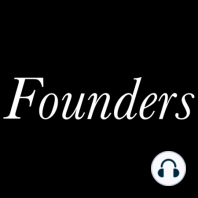45 min listen
#78 Charlie Munger (the Tao of Charlie Munger)
FromFounders
ratings:
Length:
59 minutes
Released:
Jun 30, 2019
Format:
Podcast episode
Description
What I learned from reading Tao of Charlie Munger: A Compilation of Quotes from Berkshire Hathaway's Vice Chairman on Life, Business, and the Pursuit of Wealth With Commentary by David ClarkHow is it that Charlie—who trained as a meteorologist and a lawyer and never took a single college course in economics, marketing, finance, or accounting—became one of the greatest business and investing geniuses of the twentieth and twenty-first centuries? Therein lies the mystery. [0:44]Charlie Munger was learning this important investment skill while playing poker with his army buddies. That’s where he learned to fold his hand when the odds were against him and bet heavy when the odds were with him, a strategy he later adapted to investing. [11:12] Charlie thought a lot about business during that time. He made a habit of asking people what was the best business they knew of. He longed to join the rich elite clientele his silk-stocking law firm served. He decided that each day he would devote one hour of his time at the office to work on his own real estate projects, and by doing so he completed five. He has said that the first million dollars he put together was the hardest money he ever earned. It was also during that period that he realized he would never become really rich practicing law; he’d have to find something else. [12:18]Warren, in summing up Charlie’s impact on his investment style over the last fifty-seven years, said, “Charlie shoved me in the direction of not just buying bargains, as Ben Graham had taught me. This was the real impact that he had on me. It took a powerful force to move me on from Graham’s limiting view. It was the power of Charlie’s mind.” [15:33]Knowing what you don’t know is more useful than being brilliant. [17:39]“People are trying to be smart—all I am trying to do is not to be idiotic, but it’s harder than most people think.” [17:58]All good things in life come from compounding. [19:34]This important investment philosophy assumes that one is better off buying a business with exceptional business economics working in its favor and holding it for many years than engaging in a lot of buying and selling. [19:42]Charlie knows that time is a good friend to a business that has exceptional economics working in its favor, but for a mediocre business time can be a curse. [20:25]Andrew Carnegie says in his autobiography you should study how the great fortunes are made. It's not a scattershot approach. They identified the best business possible and they put all their energy and effort into it. That's certainly what Andrew Carnegie did. [22:39]Charlie makes the point that Berkshire Hathaway probably has the most successful investment record in humanity. That is a hell of a statement and he is probably right. [26:10]Charlie advocates keeping $10 million in cash, and Berkshire keeps $72 billion sitting around in cash, waiting for the right deal to show up. The lousy return their cash balances are getting is a trade-off—poor initial rate of return in exchange for years of high returns from finding excellent businesses selling at a fair price. This is an element of the Munger investment equation that is almost always misunderstood. Why? Because most investors cannot image that sitting on a large pool of cash year after year, waiting for the right investment, could possibly be a winning investment strategy, let alone one that would make them superrich. [27:11]“I think that, every time you see the word EBITDA, you should substitute the word ‘bullshit earnings.’ ” [28:52]You have to wait for the right company—one with a durable competitive advantage—that is selling at the right price. And when Charlie says wait, he means wait as long as it takes, which can mean years. Warren got out of the stock market in the late 1960s, and he waited five years before he found anything he was interested in buying. [31:10]When Charlie and Warren say that they intend to hold an investment forever, they mean forever! Who on Wall Street woul
Released:
Jun 30, 2019
Format:
Podcast episode
Titles in the series (100)
#11 The Cook & The Chef: Elon Musk's Secret Sauce: What I learned from reading The Elon Musk Blog Series: Wait But Why by Tim Urban by Founders
